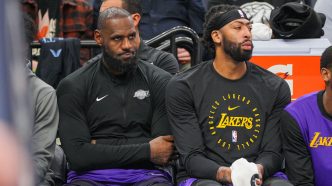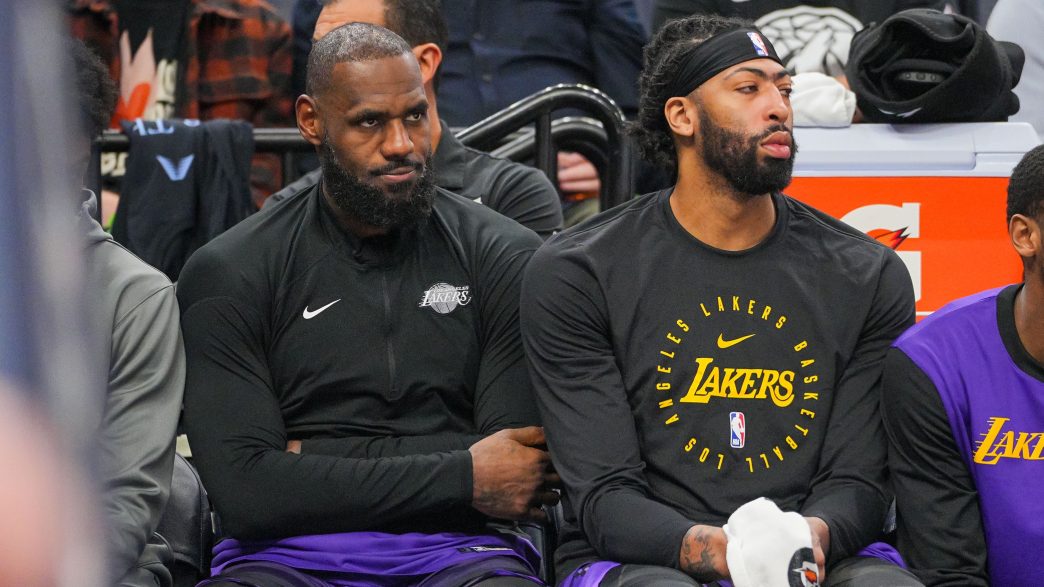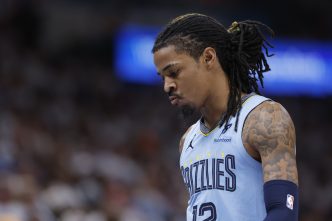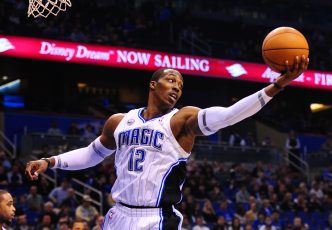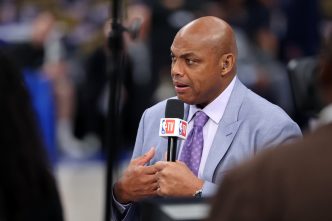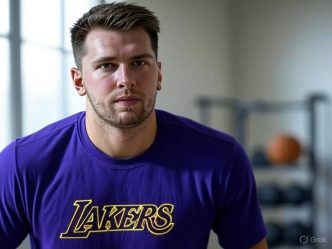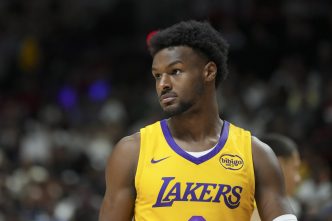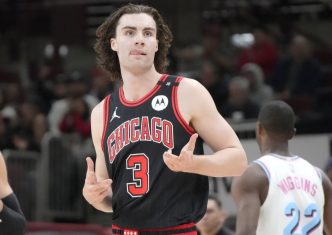The Los Angeles Lakers are on the brink of elimination, trailing 3-1 in their first-round NBA Playoffs series against the Minnesota Timberwolves as the series shifts back to Crypto.com Arena for Game 5 on April 30, 2025. A recent article from Lakers Nation titled “JJ Redick Explains Decision To Play 5 Players In Second Half Of Lakers’ Game 4 Loss To Timberwolves” highlights the desperation that has defined the Lakers’ postseason, culminating in a controversial coaching decision by first-year head coach JJ Redick during their 116-113 Game 4 loss on April 28. Redick’s choice to play only five players in the second half—LeBron James, Luka Doncic, D’Angelo Russell, Austin Reaves, and Dorian Finney-Smith—drew sharp criticism from Lakers Hall of Famer Magic Johnson, who tweeted, “Playing only 5 guys in the second half of a playoff game? That’s not how you win in this league,” per
@MagicJohnson.
The Lakers’ predicament stems from a series of front-office decisions that have left the roster ill-equipped to compete at the level required after a blockbuster trade for Luka Doncic. On February 2, 2025, GM Rob Pelinka executed a three-team deal with the Mavericks and Jazz, sending Anthony Davis to Dallas in exchange for Doncic, a move ESPN’s Tim Bontemps called “a franchise-altering gamble.” While the trade was widely praised—Pelinka himself told ESPN on February 4, “Luka is a one-of-a-kind, young global superstar who will lead this franchise for years to come”—the Lakers failed to adequately build around their new core of Doncic and LeBron James. Doncic, who averaged 33.9 points, 9.2 assists, and 8.6 rebounds in 2024 with Dallas, has been stellar in the playoffs, posting 31.8 points, 8.5 assists, and 7.3 rebounds through Game 4, per NBA.com. James, at 40, remains elite, averaging 25.5 points, 8.0 rebounds, and 7.5 assists in the series despite a minutes restriction due to a lingering ankle issue from March 2025.
However, the Lakers’ roster construction has been a glaring weakness. For years, Anthony Davis, before his trade, had requested more depth at the center position to reduce his workload at the 5, where he played 78% of his minutes in 2024, per Basketball-Reference. Davis told ESPN’s Shams Charania in January 2025, “I’ve always been at my best when I’ve been the 4,” but the Lakers consistently ignored his pleas, relying on a revolving door of veteran minimum centers like Dwight Howard (2022), DeAndre Jordan (2023), and Christian Wood, who missed the entire 2024-25 season with a knee injury. Team president Jeanie Buss, during a press tour for her docuseries Running Point on April 15, 2025, cited Davis’ demands as a reason for the trade, saying, “We couldn’t keep ignoring his frustration, but we also couldn’t build the team he wanted without sacrificing the future,” per The Hollywood Reporter.
Post-Doncic trade, Pelinka attempted to address the center position by trading rookie Dalton Knecht, selected 17th overall in 2024, and a 2026 first-round pick to the Charlotte Hornets for Mark Williams on February 10, 2025. Williams, a 7-footer who averaged 12.7 points and 9.7 rebounds in 2023-24, failed his physical due to chronic back issues, voiding the deal. Knecht, who hasn’t played a single minute in this series due to Redick’s lack of trust in his defense (he allowed 1.2 points per possession in limited regular-season minutes, per Synergy), was a steep price to pay for a failed acquisition. The Lakers were left with Jaxson Hayes as their only traditional center, who played just 8 minutes in Game 4 before Redick benched him, citing his inability to handle Timberwolves center Karl-Anthony Towns, who had 28 points and 12 rebounds. Backup centers Christian Koloko, Trey Jemison III, and Armel Traore, all on two-way contracts, have been unplayable, combining for 14 total minutes in the series.
The center position isn’t the Lakers’ only issue. Pelinka’s roster-building philosophy has eroded the two-way identity that defined their 2020 championship team. Over the years, he traded Danny Green for Dennis Schröder in 2020, shipped Kyle Kuzma and Kentavious Caldwell-Pope to Washington for Russell Westbrook in 2021, and let Alex Caruso walk in free agency to the Bulls in 2021, prioritizing Talen Horton-Tucker, who was later traded to Utah in 2023 after averaging just 9.0 points on 40% shooting. These moves stripped the Lakers of physicality and defensive versatility—Caruso, a first-team All-Defensive selection in 2023, was worth 2.1 defensive win shares in 2024, per Basketball-Reference, while Schröder and Westbrook combined for -0.8 in their Lakers tenures. The current roster, built around scoring combo guards like D’Angelo Russell (18.2 points per game but a -1.2 defensive box plus-minus in 2024-25), lacks the athleticism and defensive grit needed to compete with a team like the Timberwolves, who rank 2nd in defensive rating (104.8) in the playoffs.
The Lakers’ offseason strategy, which Pelinka described as “internal investment and growth” during a September 2024 press conference, was meant to transition away from the James-Davis era. Hiring JJ Redick, a former player with no coaching experience, as head coach in June 2024 was part of this shift, but the Doncic trade accelerated expectations without corresponding roster support. The Lakers finished the 2024-25 regular season at 47-35, good for the 6th seed in the West, but their lack of depth has been exposed against Minnesota’s balanced attack, led by Anthony Edwards (29.8 points per game in the series) and Towns. Redick’s decision to shorten his rotation in Game 4—where James played 42 minutes and Doncic 40—underscores the lack of trust in his bench, a problem exacerbated by Pelinka’s failure to build a roster capable of supporting two ball-dominant stars in a playoff setting.
As the Lakers face elimination on April 30, the pressure is on Pelinka and Buss to reassess their approach. The Doncic trade, while a coup, exposed the front office’s lack of preparation for the new reality of competing with a James-Doncic core. Without addressing their center depth and defensive identity—issues that have persisted for years—the Lakers risk squandering the prime years of their new superstar pairing, leaving fans to wonder what might have been if the organization had invested more in the roster around them.

